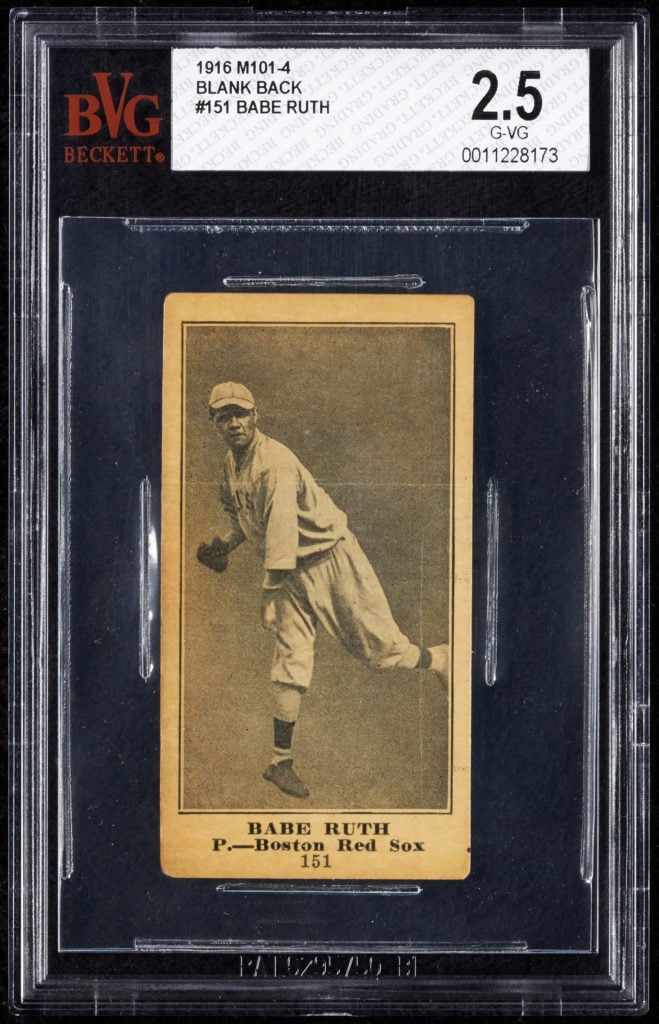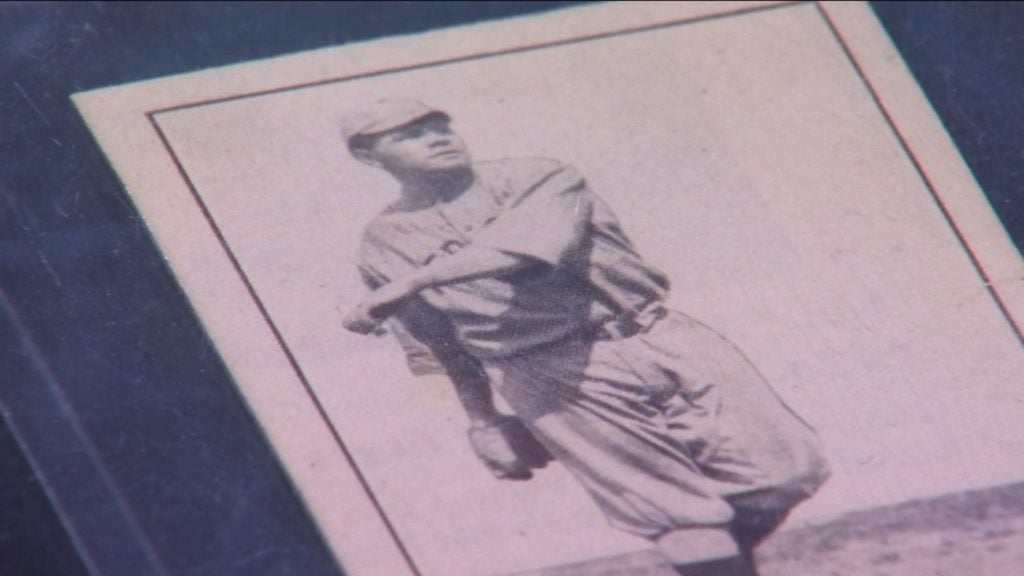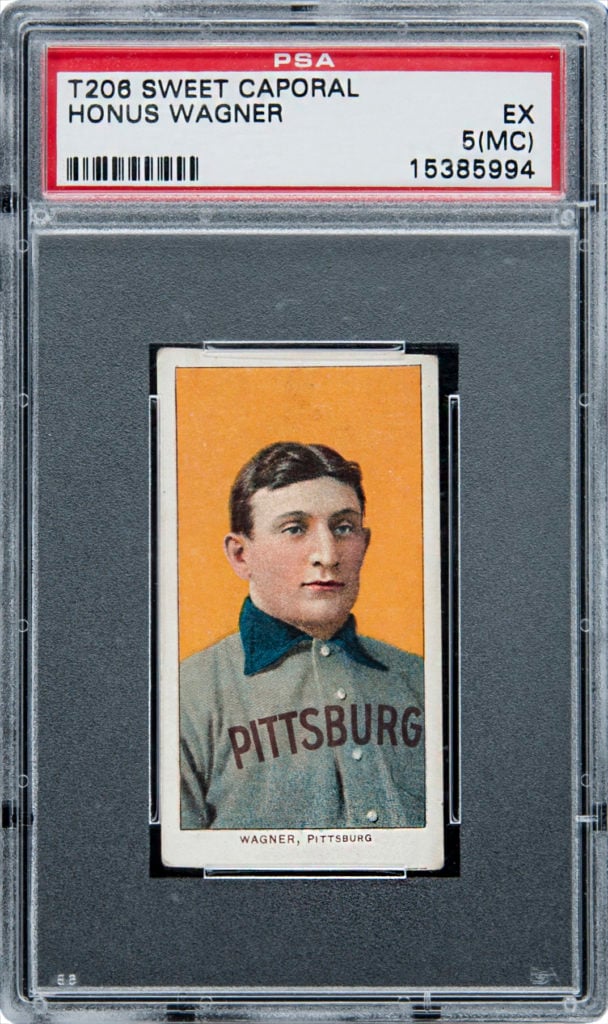Auctions
This Babe Ruth Baseball Card Found in a Piano Could Sell for Over $100,000 at Auction
The card was found in 1992, but wasn't appraised until now.

The card was found in 1992, but wasn't appraised until now.

Sarah Cascone

A rare Babe Ruth rookie baseball card found in an old piano is up for auction—and online bidding is already nearing $100,000 in the “Masterpieces and Uncommon Commons” sale at Goodwin Auctions.
Ellen Kelly discovered the collectible in a stash of baseball cards wedged inside the pedal of a player piano that once belonged to her aunt. Kelly had admired the instrument as a child, but was never allowed to play it—until she finally bought it for $25 at her family’s estate sale in 1992.
Along with the Ruth card were about 112 other vintage baseball cards, presumably hidden and later forgotten by Kelly’s father or uncle. Ruth’s card, which has a blank back, dates to his time as a pitcher with the Boston Red Sox, and comes from the historic M101-4 set, which featured photographs, rather than illustrated portraits of the players, as was done in earlier cards.
“I don’t guess I realized what they were worth when I found them,” Kelly told Sports Collectors Daily, noting that family friends had long urged her to have the cards appraised. “Best $25 I ever spent.”
The Ruth card has been given a 2.5 rating (out of a possible 10) from Beckett, a company that grades cards based on their condition and authenticity, in part because it has a print line running across Ruth’s chest. But according to the lot listing, the card “presents much nicer than the BVG 2.5 grade it received at first glance.” The sale runs through April 25.

Dale Ball bought this 1921 Babe Ruth W575.1b card produced by Shotwell Manufacturing Co. for just $2, but he now claims it is authentic. Photo courtesy of Dale Ball.
Last month, another Ruth rookie card—this one with a near-mint 7 rating from Professional Sports Authenticator—sold for $600,000 at Robert Edward Auctions. Separately, collector Dale Ball announced that he had authenticated a 1921 Ruth W575.1b card produced by Shotwell Manufacturing Co., a Cracker Jack competitor, that he had purchased for just $2. The seller, Action Sports Cards and Coin in Sparks, Nevada, had thought it was a fake.
“I was told by an auction place back East that the beginning bid would start at $1.5 [million] through them and that it would probably go for $4.5 [million] and up,” Ball told a local ABC station. “It deserves to be on the wall of Yankee Stadium, right next to Babe Ruth’s statue. It deserves to go home.”
Fresno State anthropology professor John Pryor examined the card using a fiber ID process and found the composition matched another card from that era—but without a stamp of approval from one of the three major sports authentication services (Beckett, Professional Sports Authenticator, and Sportscard Guaranty LLC), it may prove difficult for Ball to achieve the big-ticket sale he has predicted.

This T206 Honus Wagner set a new world record price for a baseball card, selling for $3.12 million at Goldin Auctions in 2016. Photo courtesy of Goldin Auctions.
The most expensive baseball card of all time is the extremely rare T206 Honus Wagner, featuring the dead-ball era Pittsburgh Pirates star, and produced by the American Tobacco Company from 1909 to 1911. In 2016, the “Jumbo Wagner,” named for its oversize lower border, set a new baseball card record with a $3.12 million sale on an even loftier $5 million estimate from Goldin Auctions.
The most famous example of the card, once owned by National Hockey League star Wayne Gretzky and thus dubbed the “Gretzky T206 Wagner,” sold in 2007 for $2.8 million to Ken Kendrick, owner of the Arizona Diamondbacks. Despite being officially graded as being in near-mint condition, the card was actually trimmed to give it sharper corners by sports memorabilia auction fraudster Bill Mastro. He admitted to doing so in October 2013 while pleading guilty on charges of mail fraud, for which he was sentenced to 20 months in jail.